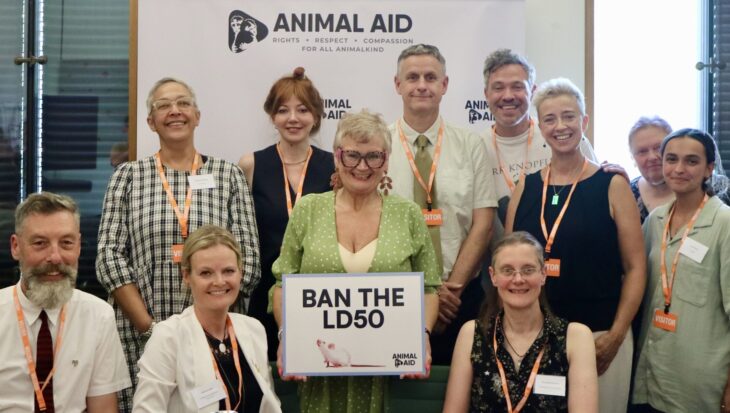Animal Aid in parliament to discuss ending animal tests
Yesterday, Animal Aid hosted a roundtable in Westminster, to meet with MPs and other invited guests to discuss the ending the LD50 and other animal tests.
Posted 02 Jul 2025

Posted on the 10th February 2012
In a letter to the Department of Environment, Food and Rural Affairs (Defra) , the Badger Trust has outlines the legal challenge it will pursue if Defra does not abandon its plans to kill badgers.
David Williams, chairman of the Badger Trust, said: ‘The Badger Trust has responded in detail to both Defra’s consultation papers on culling and suggested viable alternatives. However, our concerns that the culls proposed will actually spread the disease have not been heeded. In the light of this and our concerns over the legality of the decision, we would be failing in our duty to badgers if we did not pursue a legal challenge despite the difficulty and cost risks involved.’
In April 2011 the Badger Trust, with the support of Pembrokeshire Against the Cull, embarked on legal proceedings to quash a second Order of the Welsh Assembly Government to destroy badgers in west Wales. As a result of this challenge, the matter was suspended pending the outcome of a comprehensive scientific review ordered by the new Welsh Government.
In its current challenge, the Badger Trust considers that:
The Badger Trust will issue a statement on whether proceedings are necessary once it has studied Defra’s response, which is expected by 17 February.
Yesterday, Animal Aid hosted a roundtable in Westminster, to meet with MPs and other invited guests to discuss the ending the LD50 and other animal tests.
Posted 02 Jul 2025

Have you heard? A breathtaking arts initiative, ‘The Herds’ will be arriving in London this Friday.
Posted 27 Jun 2025
